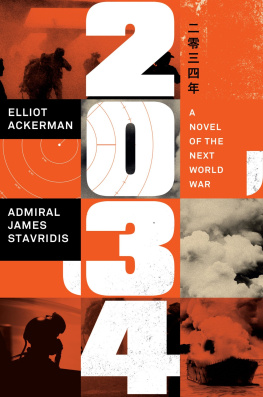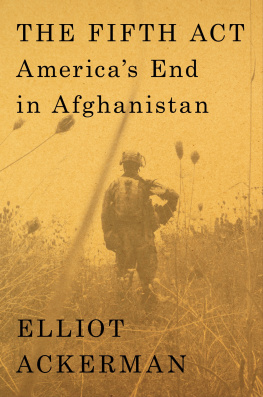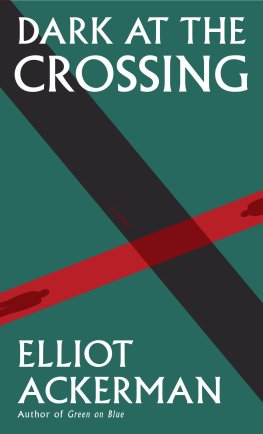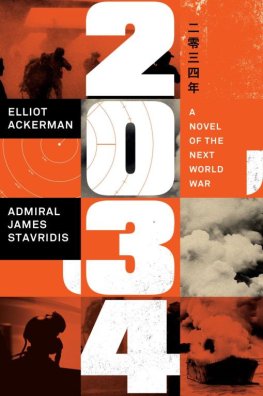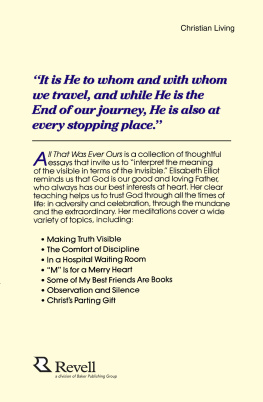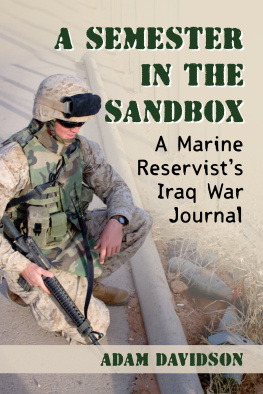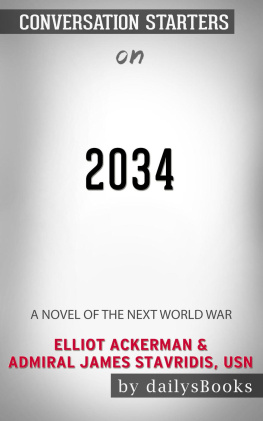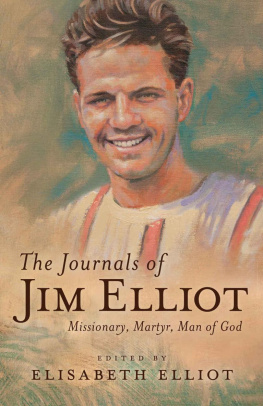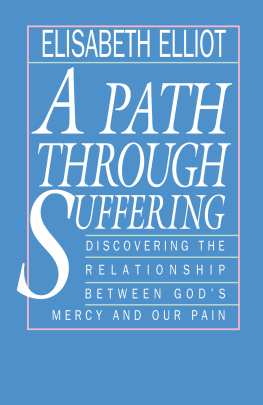ALSO BY ELLIOT ACKERMAN
Waiting for Eden
Dark at the Crossing
Green on Blue
ALLEN LANE
UK | USA | Canada | Ireland | Australia
India | New Zealand | South Africa
Allen Lane is part of the Penguin Random House group of companies whose addresses can be found at global.penguinrandomhouse.com.

First published in the United States of America by Penguin Press an imprint of Penguin Random House LLC 2019
First published in Great Britain by Allen Lane 2019
Copyright Elliot Ackerman, 2019
The author wishes to acknowledge Carcanet Press Limited for granting permission to reproduce The Triumph of Achilles by Louise Glck (1985; ).
The moral right of the author has been asserted
Cover photograph: Elliot Ackermans uniform Phil Fisk
Cover design by Tom Etherington
ISBN: 978-0-241-35519-0
This ebook is copyright material and must not be copied, reproduced, transferred, distributed, leased, licensed or publicly performed or used in any way except as specifically permitted in writing by the publishers, as allowed under the terms and conditions under which it was purchased or as strictly permitted by applicable copyright law. Any unauthorized distribution or use of this text may be a direct infringement of the authors and publishers rights and those responsible may be liable in law accordingly.
Elliot Ackerman
PLACES AND NAMES
On War, Revolution, and Returning

For Chui
In the story of Patroclus
no one survives, not even Achilles
who was nearly a god.
Patroclus resembled him; they wore
the same armor.
Always in these friendships
one serves the other, one is less than the other:
the hierarchy
is always apparent, though the legends
cannot be trusted
their source is the survivor,
the one who has been abandoned.
What were the Greek ships on fire
compared to this loss?
In his tent, Achilles
grieved with his whole being
and the gods saw
he was a man already dead, a victim
of the part that loved,
the part that was mortal.
The Triumph of Achilles, Louise Glck

THE REVOLUTION IS OVER, OR THE MUSIC WILL LIVE FOREVER
AZAZ, KILIS
Prologue
Crowds in the streets, marches, songs. Those are finished now. The revolution is over. The war can begin. A column of smoke boils upward from Azaz, a hamlet along Syrias northern border with Turkey. Beneath a blanket of slate clouds, the whip-crack of rifle fire comes at odd intervals: the Islamic State battles the Northern Storm, a brigade of the dissolving Free Syrian Army. The air is still, no wind. The smoke continues to climb, perfectly straight, building like an obelisk. A monument.
Azazs sister town is Kilis, a backwater tucked among the mossy low hills of Turkeys southern border. Just after sunrise, a week ago, the journalist Steven Sotloff crossed here; that same afternoon he disappeared on the road to Aleppo. A year later the Islamic State will behead him. Today that groups name means nothing. They are virtually unknown. Today a revolution is ending.
All I know is I have come to be close to something familiar. Standing along the roadside in Kilis, just next to the border crossing, everything is confusion, confusion and suitcases. The mornings refugees dont know what to do with themselves, so they move their suitcases from one side of the road to the other. They stack them by the bus stop, a single bench beneath an overhang, a schedule tacked to its side. They read the schedule; it has no meaningthe buses dont come. They glance at their watches, checking the time, which also has no meaningthe hour and minute hands will never point out the answer of how long they must wait. A column of halted sixteen-wheelers also waits, stalled at the border. The cargo can go no further, but it cant go back. Confusion is suitcases. Confusion is halted sixteen-wheelers. Confusion is waiting.

Farther from the road, where the mornings refugees have yet to venture, there is a camp. Behind a chain-link fence, tents are neatly aligned, and between their rows children play simple gameshide-and-seek, hopscotch, tagand women watch. The men pass quickly from one tent to another, staring at the ground, hiding their faces as if hiding all theyve lost. Outside the camps entrance, a steel revolving door the same as a subway turnstile, an entrepreneurial Turk has built a caf. It is simple: plastic chairs and tables, a propane stove for tea, a refrigerator for bottled water and soda, some packaged foodspotato chips and chocolates.
My companion on this trip, and for many months to follow, is Matt, a friend of a friend, who has spent the last six years living in northern Iraq and in downtown Kabul, teaching at the American university in both places. At the caf, he orders a pot of tea and a plate of refreshments. Matts purpose at the border is more practical than minehe wants to see if it is open. Only the week before, he incorporated the Syrian Research and Evaluation Organization, or SREO, or as he says it, sur-rey-oh, a start-up that will bid on contracts from international organizations, auditing their humanitarian relief programs or subcontracting their excess work. A boom of aid has flooded into this conflict, and that parallel economy gives Matt his ticket to ride.
One at a time, a cluster of men gathers around Matt, who comes to his feet, offering his hand and stopping the conversation to welcome each who joins this group. Matt rowed heavyweight crew at Boston University. His arms are enormous. No one stands taller than his chin, which is covered with a full, blond beard. His eyes are blue. When I come over, no one stands. I sit among the refugees and Matt. Our conversation is in Arabic, Turkish, broken English. We wrestle with language as we wrestle with our topic: Why would two rebel groupsthe Islamic State and the Free Syrian Armyfight one another? Wasnt the revolution about toppling President Bashar al-Assad? What is happening in Azaz? What has happened?
The revolution is over. The war is beginning.
The men tell us what we already know, about the fighting, about the politics. We stare at them, as if we might read their historiesthe ones we want to understand, the ones they wont likely sharein their faces, which express themselves mainly with anger, sadness, and occasionally humor when explaining some misfortune that pierces the frontier between tragedy and comedy. We watch so closely that we dont drink our tea and we dont eat our food. And when they all stand we are startled. Our eyes follow theirs, and we see someone stumbling toward us.
He is young, in his twenties, and he walks like a man in need of a cane. He wears a black parka that is too heavy for an autumn day. His cheeks are hollow, his complexion tinged a poisonous green, a film of sickness trapped beneath his skin. His gaze rests on our group. He comes closer. His eyes fix on Matts, shifting to mine. They are bloodshot, a starburst of veins. The group moves aside, allowing him to step in front of us, the pair of Americans. He unzips his parka. Lifting his T-shirt, he winces at the pain. From sternum to waistband he has been flayed open. His scar runs straight as a rail track, and the holes of heavy, unthreaded stitches appear industrial, binding like steel ties. Wed searched the expressions of these other men for some knowledge of this place, one beyond politics and the meaningless movements of armies, but this young man with the serrated scar wears such knowledge across his stomach, so much so that what I might learn from his words seems incidental compared with what I might learn from looking at his body.


